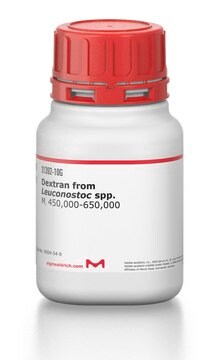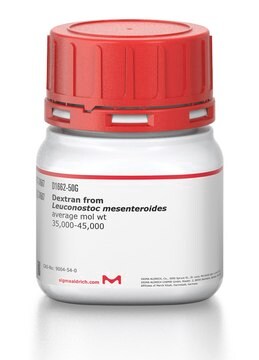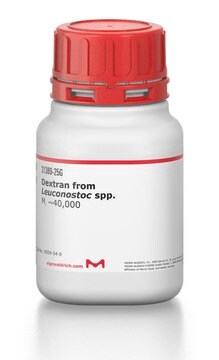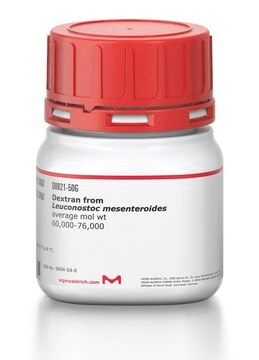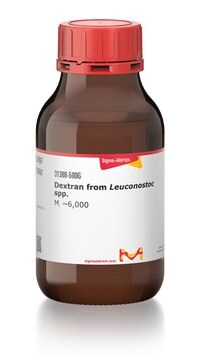D4876
Dextran from Leuconostoc mesenteroides
average mol wt 150,000
About This Item
Recommended Products
biological source
bacterial (Leuconostoc mesenteroides)
form
powder
optical activity
[α]/D 199°
mol wt
average mol wt 150,000
color
white
solubility
H2O: soluble 20 mg/mL
InChI
1S/C18H32O16/c19-1-5(21)9(23)10(24)6(22)3-31-17-16(30)14(28)12(26)8(34-17)4-32-18-15(29)13(27)11(25)7(2-20)33-18/h1,5-18,20-30H,2-4H2
InChI key
FZWBNHMXJMCXLU-UHFFFAOYSA-N
Looking for similar products? Visit Product Comparison Guide
Application
Preparation Note
Other Notes
Storage Class Code
11 - Combustible Solids
WGK
WGK 2
Flash Point(F)
Not applicable
Flash Point(C)
Not applicable
Personal Protective Equipment
Certificates of Analysis (COA)
Search for Certificates of Analysis (COA) by entering the products Lot/Batch Number. Lot and Batch Numbers can be found on a product’s label following the words ‘Lot’ or ‘Batch’.
Already Own This Product?
Find documentation for the products that you have recently purchased in the Document Library.
Customers Also Viewed
Our team of scientists has experience in all areas of research including Life Science, Material Science, Chemical Synthesis, Chromatography, Analytical and many others.
Contact Technical Service